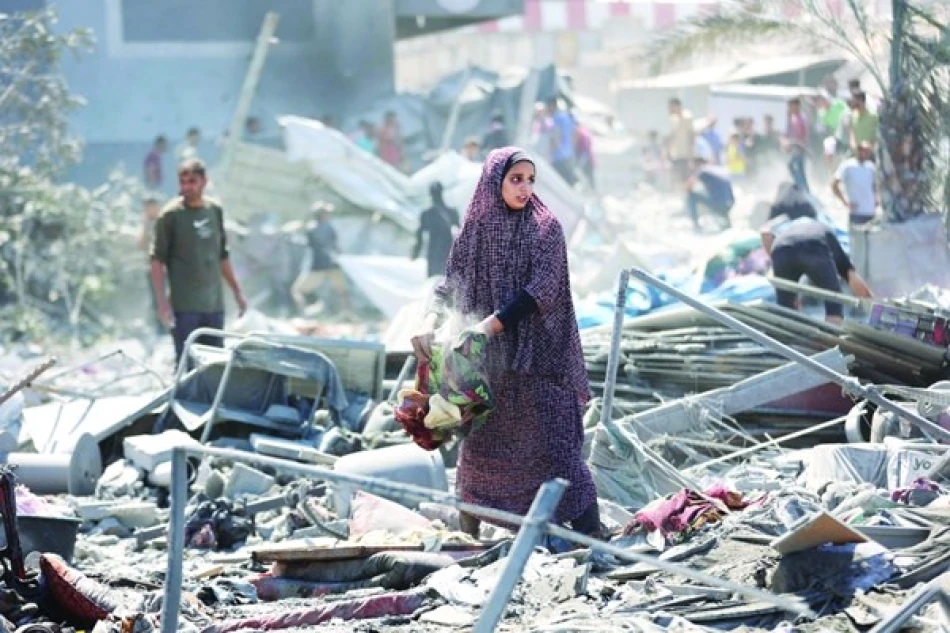
Oxfam Official: Permanent Ceasefire Crucial to Ending Gaza's Suffering
Oxfam Official Demands Global Action Beyond "Expressions of Concern" as Gaza Crisis Deepens
International humanitarian organization Oxfam is calling for immediate global intervention to end Israel's blockade of Gaza, arguing that world governments must move beyond diplomatic statements to concrete pressure tactics. The organization's regional policy advisor warns that sustainable Palestinian development requires ending occupation entirely, not just providing emergency aid to over 2 million trapped civilians.
From Diplomatic Rhetoric to Economic Leverage
Nour Shawaf, Oxfam's Regional Humanitarian Policy Advisor for the Middle East and North Africa, emphasized that a permanent ceasefire represents just the starting point for addressing Gaza's humanitarian catastrophe. Speaking to media outlets, she argued that international powers must utilize their economic and political influence to force Israel's compliance with genocide prevention treaties.
This shift in humanitarian advocacy reflects growing frustration with traditional diplomatic channels. Rather than accepting limited aid deliveries as sufficient progress, Oxfam is demanding complete border reopening and unrestricted humanitarian access—a position that directly challenges Israel's security-based restrictions on Gaza.
UNRWA Funding Crisis Threatens Millions
Shawaf specifically highlighted the critical need to restore funding to UNRWA, the UN agency supporting Palestinian refugees. Several donor countries suspended contributions following allegations of staff involvement in militant activities, creating a funding gap that affects essential services for millions of Palestinians across Gaza, the West Bank, and neighboring countries.
The timing of these funding cuts has amplified Gaza's crisis, as UNRWA traditionally provides education, healthcare, and emergency assistance that private humanitarian organizations cannot fully replace. Oxfam's emphasis on UNRWA restoration suggests the agency remains irreplaceable despite political controversies surrounding its operations.
Oxfam's Ground Operations Reveal Scale of Need
Between October 2023 and March 2025, Oxfam reached over 1.1 million people in Gaza through food distribution, clean water provision, and sanitation system repairs. The organization installed solar-powered desalination units and restored water networks serving more than 300,000 residents, while providing agricultural inputs to help farmers resume production.
These figures illustrate both the massive humanitarian response and its limitations. Despite reaching half of Gaza's population, Oxfam officials acknowledge that blocked aid deliveries and closed crossings prevent adequate supply flows, making comprehensive disaster prevention nearly impossible.
West Bank Operations Signal Long-term Strategy
Beyond Gaza's immediate crisis, Oxfam maintains programs in the West Bank supporting local Palestinian communities, women's cooperatives, youth employment initiatives, and sustainable agriculture projects. This dual approach suggests the organization views both territories as requiring sustained development assistance, not just emergency intervention.
The West Bank focus also reflects recognition that Gaza's isolation represents part of broader restrictions affecting Palestinian economic development across occupied territories. By supporting local cooperatives and sustainable farming, Oxfam aims to build resilience against both military actions and settlement expansion.
Breaking the Aid Dependency Cycle
Shawaf's most significant argument challenges the humanitarian aid model itself. She contends that sustainable Palestinian development requires ending occupation, achieving justice, ensuring legal accountability for violations, and investing in rebuilt water, health, and livelihood systems. Without these structural changes, she warns, Gaza will remain trapped in cycles of destruction and aid dependency.
This perspective aligns with development economics research showing that emergency aid, while essential for immediate survival, cannot substitute for political solutions enabling normal economic activity. Oxfam's position effectively argues that humanitarian organizations cannot solve what remains fundamentally a political conflict requiring diplomatic resolution.
Most Viewed News

 Layla Al Mansoori
Layla Al Mansoori






